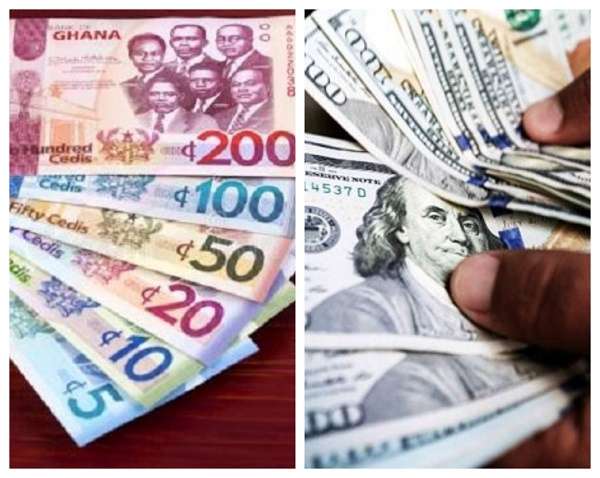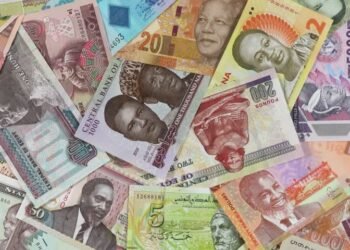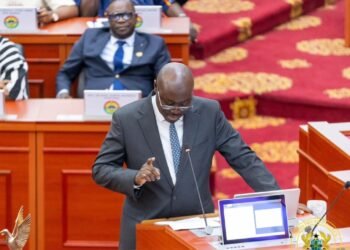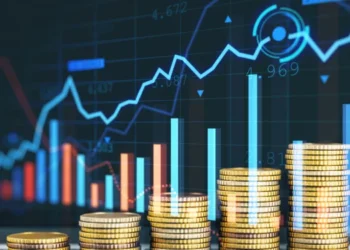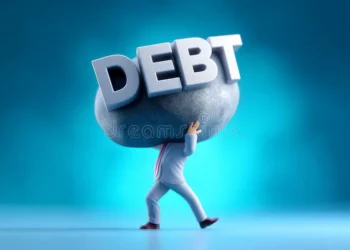Ghana’s local currency, the cedi, has been ranked as the 7th strongest currency in Africa at the end of the first quarter of 2025.
According to the Forbes currency calculator, the cedi was valued at GH¢15.48 to one US dollar, placing it ahead of several African currencies.
Despite this ranking, a market expert and analyst, Ms. Gifty Annor-Sika Asantewah, who is also the Chief Executive Officer of Women in Forex Ghana has argued that the cedi’s current value does not reflect its true strength, predicting that it will continue to depreciate until it stabilizes at around GH¢18 to the dollar.
The analyst further explained that the cedi’s relative stability in 2024 was largely due to artificial interventions by the previous government to bolster its value ahead of the general elections. “Now that the election season has passed, the currency is beginning to reveal its true market strength.”
She believes that Ghana’s handling of currency depreciation issues has been unimpressive, considering that a successful and peaceful election with a smooth transition of power should have boosted investor confidence and strengthened the cedi.
Cedi’s Declining Performance in Q1 2025
Despite its ranking as the 7th strongest currency in Africa, the Ghanaian cedi has been steadily depreciating since the beginning of 2025. According to the Bank of Ghana, the cedi lost 5.3% of its value on the interbank market in the first quarter of 2025. In the retail market, the depreciation stood at nearly 3.0% against the US dollar.
The analyst warned that this trend could persist throughout the year, bringing the cedi closer to its “true value of GH¢18 per dollar”.
“The artificial appreciation of the cedi in 2024 was not sustainable, as it was driven by government policies aimed at making the economy look stable ahead of elections rather than by genuine economic fundamentals.”
Ms. Gifty Annor-Sika Asantewah
While the cedi maintained its position among the top 10 strongest African currencies, it lagged behind several others that showed more resilience. The Tunisian dinar was ranked as Africa’s strongest currency, with an exchange rate of 3.09 to the US dollar. The Libyan dinar, Moroccan dirham, Botswana pula, Seychelles rupee, and Eritrean nakfa followed in the rankings, securing the top six positions.
Ghana’s currency was ahead of the Lesotho loti, Namibian dollar, and South African rand, which ranked 8th, 9th, and 10th, respectively. According to Forbes, a strong and stable currency is a significant economic asset, particularly for African countries striving for long-term growth and global competitiveness. Stability in currency value helps to cushion economies against financial shocks, preserve purchasing power, and boost investor confidence.
Causes of the Cedi’s Depreciation
Ms. Annor-Sika disclosed that several factors have contributed to the cedi’s continued depreciation.
One of the key reasons cited by the analyst is the country’s reliance on imports, which increases demand for foreign currency and puts pressure on the local currency. “Ghana’s import bill remains high, particularly for essential commodities such as fuel, food, and industrial raw materials.”

“Additionally, the country’s external debt obligations have led to high demand for the US dollar to service debt repayments. Ghana’s debt restructuring efforts, under the International Monetary Fund (IMF) program, have provided some relief, but the long-term impact of these measures on the cedi’s stability remains uncertain.”
Ms. Gifty Annor-Sika Asantewah
The analyst also highlighted capital flight and reduced foreign investment as contributing factors.
“While Ghana’s peaceful elections were expected to improve investor confidence, foreign direct investment inflows have been slower than anticipated. Without sufficient foreign capital inflows, the cedi faces continued pressure in the foreign exchange market.”
Ms. Gifty Annor-Sika Asantewah
What Lies Ahead for the Cedi?
The analyst predicted that the cedi will continue to depreciate gradually until it reaches its actual market value. She emphasized that Ghana’s policymakers need to adopt stronger economic measures to stabilize the currency in the long term.
“We should breast up for more volatility in the coming weeks until the cedi reaches its actual value of around GH¢18 per dollar. Some of the measures the government must adopt in my opinion include promoting local production to reduce import dependency, enhancing foreign exchange reserves, and implementing policies that attract sustainable foreign investments.”
Ms. Gifty Annor-Sika Asantewah
One example cited was Kenya’s shilling, which has remained relatively stable due to foreign inflows from non-governmental organizations and remittances from the diaspora. If Ghana can boost its foreign exchange inflows through similar means, it could help slow down the cedi’s depreciation.
To prevent further depreciation, Ghana’s economic managers must implement sound policies to stabilize the currency. Reducing reliance on imports, attracting foreign investment, and increasing forex reserves are crucial steps to ensuring a more resilient and stable cedi in the long run.
READ ALSO: OmniBSIC Bank Sets the Pace with Record-Breaking Health Walk and Digital Banking Innovation

